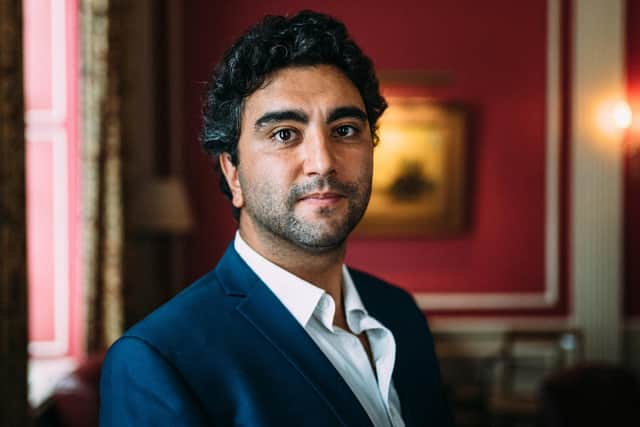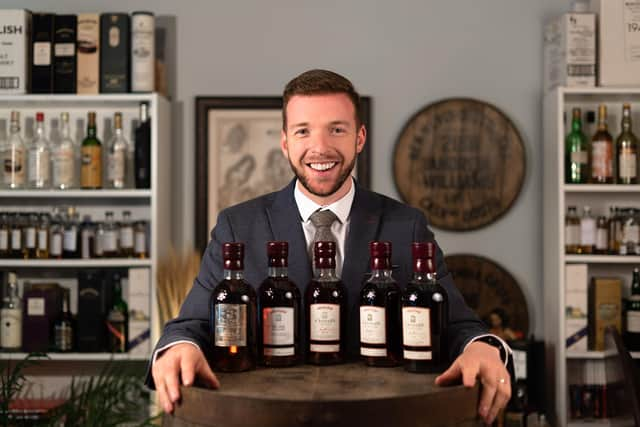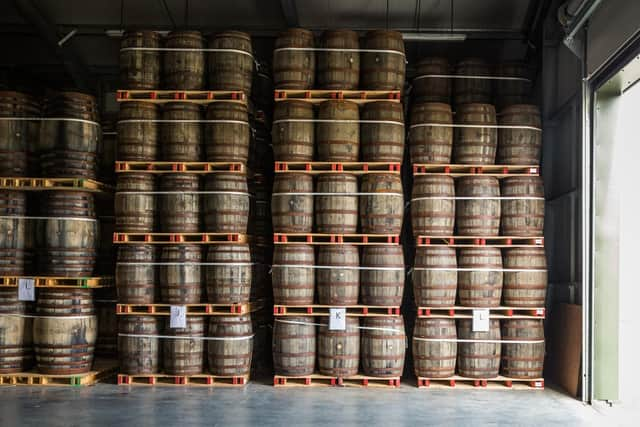New website launched to educate on whisky cask investment market
As concerns surrounding the plethora of Scotch whisky cask investment companies rumbles on, two whisky experts - writer and Keeper of the Quaich - Felipe Schrieberg and independent whisky broker, market analyst and consultant Mark Littler have launched ProtectYourCask.com, an educational tool designed to providing useful information about purchasing and owning a cask of Scotch whisky while avoiding the risks associated with this market.
It’s a straightforward idea, explained Schrieberg, who is also cofounder of the Rhythm and Booze Project. It’s all about clear information in an unregulated market. A market that’s making money from people’s romantic vision of owning a cask, that’s sitting in a rural warehouse waiting to be drunk with family and friends.
Advertisement
Hide AdAdvertisement
Hide AdAs to how this new venture came to be, he said: “I've been keeping track of the state of the Scotch whisky cask investment market for years. Mark has done the same so it's something that we've been keeping in touch about over time. We kept getting angrier as we saw clear red flags throughout its development that could lead to fraud.


"What bothers us most is the misinformation that's being published about investing in or buying and owning a Scotch whisky cask. We thought there needs to be something that clearly lays out what this actually means for a prospective investor. So the goal of the site is to tackle that problem.”
After taking a lot of time, and undertaking a lot of research, Felipe and Mark launched ProtectYourCask.com in March.
Schrieberg explained: “The first problem is people coughing up money are being told they're going to own a cask, when by actual UK law, they do not actually own that cask. The other element is that they will buy a cask, and they may even get all the correct documentation, or they might actually own that cask, but they paid absurd amounts for it, so it's not an investment at all. There's no way they're going to make their money back on that cask because of the ridiculous amount that they overpaid for it.”
Schrieberg said that the Scotch Whisky Association does have excellent advice on buying casks, but it is “impossible to find”.


He said: “We think the Scotch Whisky Association has issued good advice. We have made The Scotch whisky Association the centrepiece of what we put on the site. It's just that that advice is impossible to find. We know about it, but most people don't. Especially people that just want to look into casually investing in whisky.”
He said using ProctectYourCask.com equips people with the questions to ask, the main one being, ‘will I have contact with the warehouse in which my cask is stored in?’
He explained: “Because that's pretty much the legal backbone of owning a cask. You don't need a delivery order, as we say on the site, but you do need to have something that shows that the warehouse is aware of who has purchased that cask in order to legally own it. Everything else is a legal grey area that’s not been tested therefore can't really be trusted in terms of what ownership means for a cask of Scotch whisky.”
Advertisement
Hide AdAdvertisement
Hide AdWhile records have been broken in recent years for the sales of bottles - namely the Macallan Adami 1926 and one Ardbeg cask - the market continues to slow down, with Whiskystats, a business that collates whisky data analysis, recently reporting a growing disparity between retail and auction market prices for whisky. In short, whisky is becoming a buyers’ market.


What does this mean for people who want to invest in whisky or who have sunk a lot of money into a cask investment company?
“We will see this bubble bursting,” Schrieberg said. “There is no regulation of the Scotch whisky investment cask market. Because of that, there is no oversight in any way - people are just making commitments of money and firms are taking it. So the bubble, frankly, will pop.”
Ultimately whisky is made to be drunk. It’s also a product very much of its environment and people which are often romanticised. It’s this romantic notion that may peak someone’s interest into spending a lot of money on a cask.
Of this Schrieberg said: “Whisky primarily is made to be bottled and drunk. While there is a place for cask investment in the Scotch whisky industry, for example for entities such as independent bottlers, when you turn it into an investment vehicle or finance ‘opportunity’ it undermines what it means to truly enjoy whisky. Buying a cask is a romantic concept, but in my and Mark's opinion the current state of the Scotch whisky cask 'investment' market is very weird, risky and open to fraud. It undermines the integrity of an industry that we're very passionate about, a pillar of Scottish economy and culture."
Comments
Want to join the conversation? Please or to comment on this article.